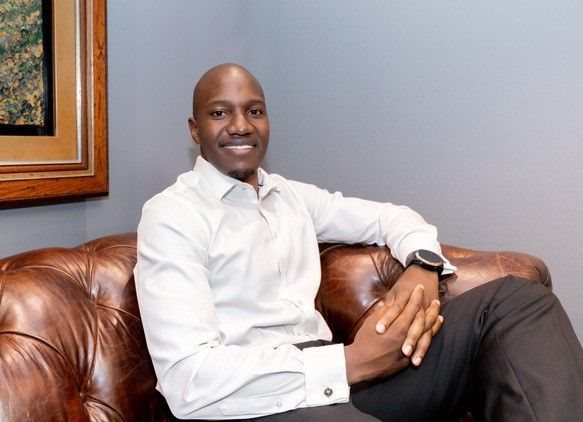As co-founder of international software company and leader in professional learning, Go1, what was the process of raising capital?
Ultimately, when it comes to raising capital, it is also asking yourself, why you are raising capital, and what do you need beyond capital. Often when you raise capital, you get more than capital, depending on who you raise from, so it is important for us as entrepreneurs to be clear as to why we need to raise capital and ask ourselves, is the form of capital we’re raising the appropriate form of capital.
It's not necessarily a foregone conclusion when you are raising capital that you should raise equity financing from a venture capital firm, you may be better off seeking a form of debt financing, which is a real option for startups given the proliferation of options like revenue-based financing.
You need to make sure that the form of financing aligns with the intended use of the funds, in our instance, having a clear vision for the where we want to take the business and how that particular capital will unlock the next phase of growth. From that perspective, it starts from within the company, and having a deep understanding of what you want, what you want to do with it, how much, and the way in which you are going to make it work within the business.
Thereafter, it's sensitizing, for instance in our case, for our last raise, with our current investors, our current board, we said ‘look, with x amount of capital, we believe that we can unlock this level of growth in the business and this is why we think that now's the time.’ It also led us to target the right kind of partner for that phase of growth.
For example, we were intentional about bringing on partners from an investment perspective, who brought more value than just capital, because that was important for us. So, whether it was bringing on a large B2B technology companies in the form of Microsoft and Salesforce, or having partners who deeply understand the education and employability space, like Oxford University and Seek – we were intentional about that composition.
What are the challenges you encountered?
A key part of fundraising is getting to know another organisation/investor. Doing so is vital because having someone as an investor is one of the longest relationships one has an entrepreneur and business – its arguably easier to end a relationship with a vendor, customer or team member than it is to remove an investor from your cap table.
Therefore, a key challenge can be ascertaining if a potential investor is the right partner for you and your business, especially given the relatively limited interactions you will have them.
The ways in which one could overcome that, not to preempt your next question, but thinking through it, for example, is to look at other deals that they've done in the market, and essentially do a reverse due diligence on the investors you're targeting.
For us, before we talk to an investor, we'll take a look at their other investments, and see how our business fits into their broader portfolio, and the investment themes that they care about. This evolves to talking to the leadership at investment to see how they think about our space and its evolution. Further in the process, nothing beats speaking to a portfolio company of theirs that has done well, and one that has done poorly, and understanding how, in each particular context, the potential investor was as a partner.
How did you navigate through the challenges?
Each stage of the capital raising process can presents its own set of challenges - challenges if not addressed can destroy your business even if you end up “successfully” raising capital.
The most important tool to navigate most challenges is making sure you have aligned values, like an aligned vision for the company and the path to get there with them as an investor.
Anyone can say, yes, I want to build a unicorn business, but if your investor doesn't believe in your path to get there or you are not aligned on your role as a founder, who may understand the space better than they do, versus them saying, look, actually, we want to remove the current management team and bring in our own executives – it is those differences that one can easily be taken for granted.
Like in any sort of relationship, it is important to have the hard conversations upfront, even though to some extent you are still courting each other. Having misaligned expectations is probably the biggest downfall in relationships.
How can entrepreneurs improve capital raising skills?
In my experience, it comes down to investing proactively in deeply understanding the psyche, objective and process of a venture capitalist. Because if you understand what venture capitalists or angel investor are trying to achieve: their objectives, target returns, hurdle returns, risk tolerance and so forth, you’ll be at that level of empathy where you will understand what they are solving for, and therefore be able to position you and your business more successfully. It is about “knowledging up” as an entrepreneur. Many books out there that explain and unpack the mechanism of venture capital investments, Brad Feld’s Venture Deals is one such example, which does particularly well to demystify the key elements of an investment term sheet.
However, there's a whole body of knowledge around how you actually get to that point of getting an investment term sheet, because getting a term sheet is not as simple as ‘Hi” “Oh, hey - here's a term sheet.’
Here, again, it comes to back to making sure you deeply understand the people you're approaching and being intentional about doing so. You must appreciate that you spend every day thinking about your business and how you grow it, no investor is doing that, even if they have been actively tracking your business.
It is up to you to bridge that gap in knowledge and understanding of you and your business. The same way you need to articulate clearly your value proposition to a potential customer, or your company’s why to a potential new hire, the same applies about an investor. Don't discount what an investor already knows and understands about your business, the market opportunity you're trying to capture, and your team – specifically why you are the team that will succeed in capturing the opportunity.
The edtech space in Africa is often competitive. Can you give us an overview of what is currently taking place?
First of all, it is good that the education space is competitive in Africa because I think there is the most value to be unlocked through education technology in its broader sense from K12 to secondary learning through to tertiary and professional learning. That being said, globally, the edtech is also competitive, particularly since entrepreneurs are ambitious, and aim to solve problems that by solving will have a big impact, and education is one of those areas that now more than ever, if one successfully applies themselves, they can have a significantly outsized impact. Therefore, education attracts many entrepreneurs, and as a result we are seeing a proliferation of players in the space.
In the same vein, one has seen players fall out of the edtech space, because what many of such entrepreneurs often do not think about adequately at the outset, is their business model and monetization. They'll come out and raise capital, but not necessarily think through the commercials and economics of their solution. What is exciting is that you are seeing really seasoned entrepreneurs, some of them are partners to Go1, really coming in and applying themselves as to how to address the challenges on the continent with something unique to the continent, as opposed to a “copy paste” approach.
This is something we're very big on in Go1 space, how do we localize our content offering and partner with local content providers to make our offering relevant. I think what you're seeing as a trend is the realization of the importance of localization of solutions, and models to achieve that. Whether you're buying a phone with pre-loaded content for schools via micro-USB, as opposed to say, focusing on trying to make mobile free, and just thinking through ways in which challenges can become opportunities, I don't think it's the end of innovation and intense competition in the space.
How does a startup in the edtech space stand out from its competitors?
Depends what space of edtech you’re in, one of my post graduate degrees is in Education technology and I spent a good amount of time thinking about the space, but theory alone is not enough.
The reality is that for any entrepreneur building a business, especially in the tech space, you want your solution to be 10x better than what's currently in the market.
From that perspective, what you need to think through is “how do I significantly add more value than what the current solutions provide?”.
I believe that is how one stands out and differentiates: if you create more value through your solution, you are likely to capture more value though your solution. I am a firm believer that if you aren't creating the value that you're trying to capture, you're being value destructive. You need to keep your customer and their needs front of mind, for example you'd be surprised how simple changes in user interface and user experience, will go a long way to improve the utility of your solution for end customers.
What opportunities should startups in the edtech space look out for?
Even though edtech can be seen as a very busy and well occupied space, I do believe there are some white spaces, or rather there are spaces which are white, because there isn't necessarily a clear winner in them.
Covid-19 has either highlighted opportunities or shown the weakness of current systems in education and delivery thereof.
This is true from early childhood development right through to professional learning. If you understand the problem better than anybody else, you'll be able to come up with a solution better than anybody else.
I think it's important to not discount the importance of spending time with your target customers in their element, understanding what they need, and in that way, you will come across different opportunities to create value.
I was part of a team where we built out a school payments platform, and again, that was a pain point which unless one was close to the fire, understanding what parents are going through, together with school administration and bursars one wouldn't necessarily know the opportunity. Given this, I believe the starting point is often just immersing yourself in the ecosystem more than anything else.
How did Go1 grow internationally?
Through blood, sweat, and tears *laughs*. No, I am kidding. One thing we were, was very intentional in building out Go1, and we have always known that the problem and opportunity we were targeting is a global one. It's why, even for us early on, when we applied to join a program in the US called Y Combinator, which is a tech accelerator in Silicon Valley, our main reason was because we knew we wanted to build a global company, we thought, lets learn from the best, globally. But in the same vein, no one says I want to be global and starts global, you have to earn the right to do so, but start off by meeting a specific local need: If you want to be an Amazon, the everything store, you may start with books, if you want to build an eBay you may have started with offering a marketplace for Pez candy dispensers.
It is crucial that whilst thinking internationally, not to lose sight of the importance of getting runs on the board and starting where you are and dominating the vertical you find yourself. You have to earn the right to expand internationally.
If I think of our journey, we were also fortunate to have clients who had international operations and therefore we could grow with them. Having trained as an actuary, my default is to think about managing risk and risk adjusted returns.
From an international expansion perspective, it’s about thinking through, where and how is the next best Rand or Dollar spent in terms of the return for us to get there and thinking about it smartly.
For example, you can expand internationally without necessarily having a physical presence in that country. I remember when we began in the US, I had a sales team outside the US selling into the US – it did mean working odd times though, so we had two shifts.
Where is your most prominent market? And why do you think this is?
That's interesting, when I think of our most prominent market now, I think it's definitely changed over the time. When I think about our evolution, we had strong growth in our initial core markets and then we started to focus on the US because it is the biggest training market by spend in the world, and with a bigger market comes more competition, then it’s a question of if you are a market maker, or market capturer.
What we are seeing now from a growth perspective, is the rise of EMEA (Europe, Middle East and Africa) which has also been fueled by our most recent offices being in the Middle East, and now in London. We still have a large presence in Australia, where we have the benefit of strong reference-ability and brand equity.
What advice do you have for startups entering the edtech space?
You know, and I ask myself the question, would I give a different answer if it was someone not in the edtech space? I don’t think the answer would be different. If you are the kind of person that puts themselves out there, sees a problem and says, I want to build a solution to this problem that I'm experiencing, then the best piece of advice is too just get started. It is very easy to procrastinate.
Reid Hoffman, co-founder of LinkedIn, once said ‘if you aren't embarrassed by the first release of your product you've released too late’. If one is a perfectionist, and you want to solve for something in particular, the reality is that you just need to double down. Get things in front of your customers and let them give you the feedback that informs further refinement. Be relentless in the pursuit of customers, someone can be slow on emails but keep following up, you may have just fallen out their inbox. Being relentlessness and also having the ability to start where you are is important.
Endeavor is a global high-impact entrepreneurship movement to drive long-term economic growth and build strong entrepreneurship ecosystems in South Africa by selecting, mentoring, and accelerating the best high-impact entrepreneurs.












































